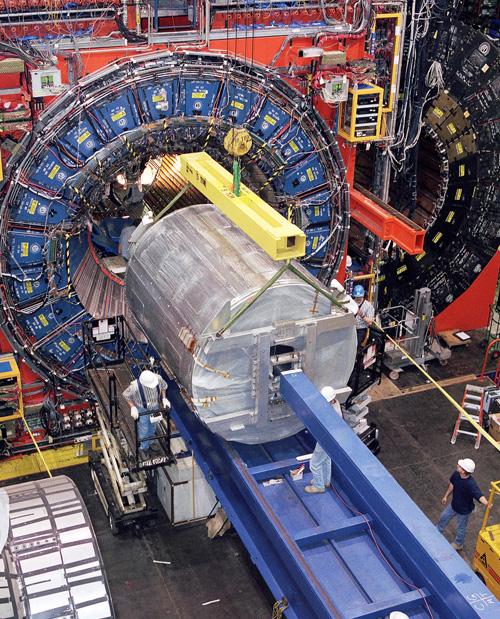Chicago lab races Switzerland’s Hadron Collider to find evidence of ‘God particle’
February 20, 2009
CHICAGO – So, does the Fermi National Accelerator Laboratory’s Tevatron accelerator have a shot against the Large Hadron Collider in Switzerland?
It may not be the question all the boys at the end of bar are asking – but it gets particle physicists psyched.
After all, the race is the one to find evidence of a hypothetical particle called the Higgs boson, better known as the “God Particle” because it is believed to give mass to matter that makes up the universe.
“This has been the holy grail of high-energy physics for the last 30 years,” said Joe Lykken, a senior scientist at Fermilab in the Chicago suburb of Batavia.
Just months ago, it appeared evidence of the Higgs would be found by scientists at the European Organization for Nuclear Research (CERN) manning the Large Hadron Collider (LHC) – not those at Fermilab.
Get The Daily Illini in your inbox!
“People laughed at the idea of (Fermilab) finding the Higgs,” Lykken said. “Our accelerator was not built to find the Higgs.”
The LHC was. It’s the world’s largest atom smasher, far more powerful than Fermilab’s Tevatron. It kicked off with an impressive show of force in September, when beams of protons were fired at the speed of light – first in a clockwise direction and then counterclockwise.
The idea Fermilab could pull ahead in the Higgs search seemed about as likely as a Model T beating a Corvette in a drag race.
But just more than a week later, the LHC was shut down because of a faulty wiring splice. This month, the operator said additional safety features will keep it from firing up again until the end of September.
Fermilab scientists, meanwhile, say their accelerator is running very well – raising hopes its ongoing tests smashing beams of protons into beams of antiprotons eventually result in Higgs particles.
Believe it or not, things are looking up money-wise as well.
“We were looking at huge budget cuts last year and now we are hoping to get stimulus package money and scrambling to see the best way to use it,” Lykken said.
Added up, scientist Dmitri Denisov said Fermilab’s “probability of discovering” the Higgs is between 50 and 90 percent. Read: They think they have a real shot.
“The bottom line is we have a very reasonable chance to see hints of the Higgs particle by 2010 or 2011,” Denisov said.







